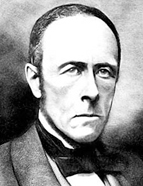

Nevertheless, in the last decade of his life, his appraisal of major national issues was tainted by a mixture of scepticism and disillusionment. In a letter dated 1872, he wrote that “the spectacle of a nation's most recent malaise is always a sad affair, but doubly so when that nation is our very own” (“Correspondência inédita” [“Unpublished Correspondence”], 292; see also: “A supressão das Conferências do Casino” [“The Suppression of the Casino Lectures”], 168; “Cartas sobre o casamento” [“Letters on marriage”], 35). Such pessimistic prognoses stemmed from decades of a political experience marked by the intransigent adherence to an “ethic of conviction” and an almost constant negative appraisal of what, from a different viewpoint, might fall under an “ethic of responsibility.” In Max Weber’s opinion, against such unilateral predominance of an ethic driven by absolute imperatives it would be virtually impossible to conduct efficient and sustainable political leadership. Without the patience to drill through the “thick planks” who were excessively vulnerable to the perception that the world was “stupid or too mean for what he had to offer it” (Weber, “A política como vocação” [“Politics as a Vocation”], 136-139; slightly edited translation), Herculano would soon step back whenever he got close to the hard core of Portuguese public life. That was exactly what happened on the two occasions he ventured into active politics in the early 1840s and later, at the beginning of the 1850s. His conversion to a historian resulted from his former retraction while his transmutation into an intellectual leader of the opposition resulted from the latter. When he grew tired of this position, he withdrew to Vale de Lobos to engage in agriculture. Ill at ease with being a direct political actor, averse to the daily procedures of party politics and unhappy about leadership concessions with fewer moral principles than his own, Herculano demanded too much from the governments and politicians, far more than politics in those times could achieve – a “government of angels”, as noted in patronising irony by Visconde de Algés [Viscount of Algés] (cited by Oliveira Martins, Portugal contemporaneo, II, 295). However, the very same principles and firm convictions that had frustrated him so much would prove decisive to laying the foundations of his future glory. To a large degree, it was his prophetic, ruthless and utopian approach to national problems that made him a “kind of moral reserve” for future generations in a variety of situations. (Pereira, “Alexandre Herculano”, 222-223).
It is a fact that, despite his reiterated statements to the contrary, Herculano pursued his literary and political activities even after he had moved to the Ribatejo. He continued to work, albeit not exclusively, on the reprint of his main books, the compilation of his Opúsculos [Pamphlets], on editing historical documents, writing vast quantities of letters, the contents of which often extrapolate a personal scope, in new opinion papers on political and religious issues, on the translation of the epic poem The Frenzy of Orlando, the essay on the ”existence and non-existence of feudalism in Portugal”, as well as on the continuation of his História de Portugal (Serrão, Herculano e a consciência do Liberalismo [Herculano and the Conscience of Liberalism], 240).
